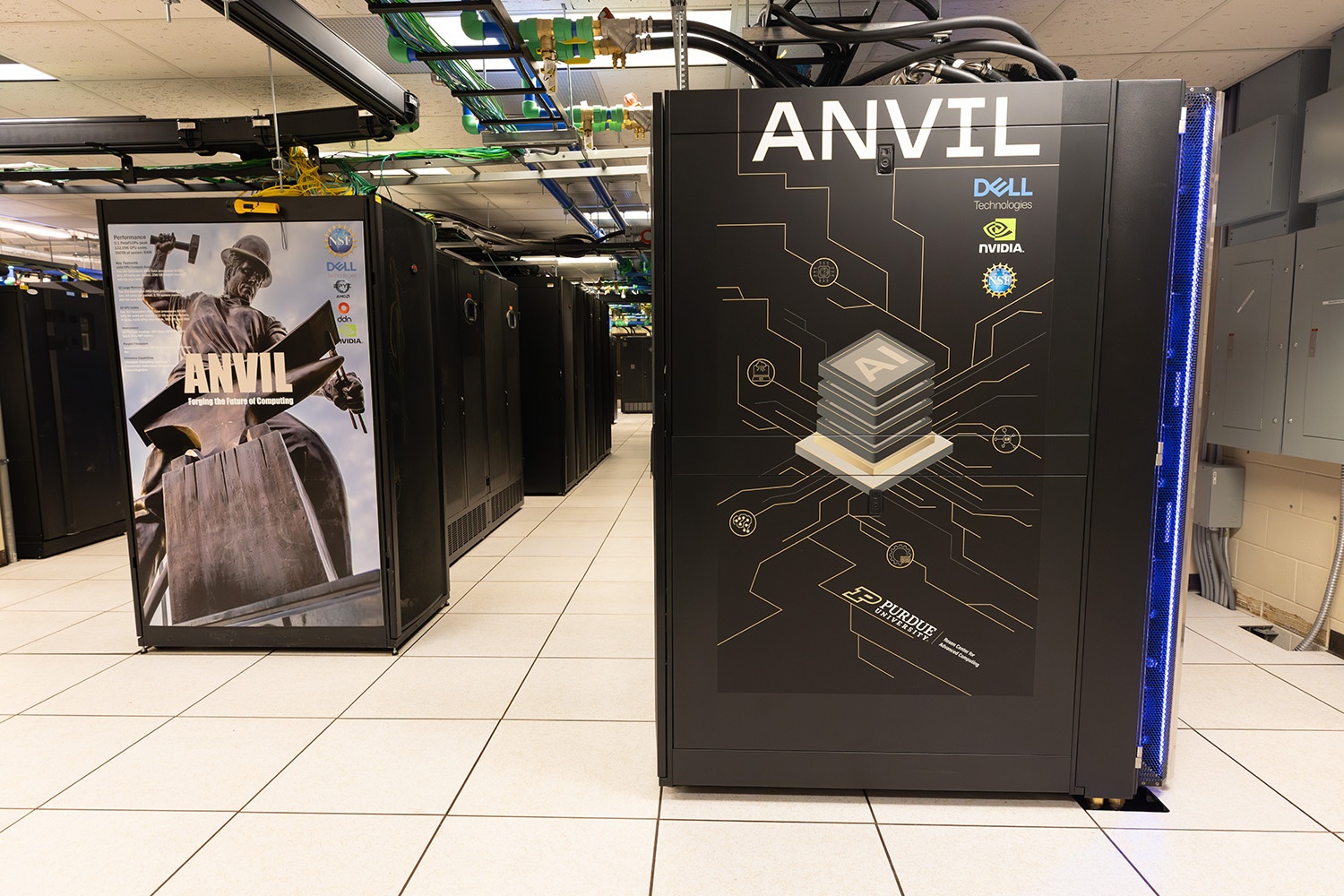Anvil AI now available to ACCESS researchers
Researchers nationwide can now request access to the Rosen Center for Advanced Computing’s (RCAC) new national artificial intelligence (AI) resource, Anvil AI.
Purdue University's  powerful national HPC-resource, the Anvil supercomputer, recently received an upgrade, thanks to support from the National Science Foundation’s (NSF) NAIRR Pilot Program. This hardware upgrade added a total of 84 Nvidia H100 SXM GPUs to the system. Along with the GPUs, Anvil AI also features 1 petabyte of object storage, which can host datasets needed by AI researchers. After being deployed and utilized to great success through the NAIRR Pilot, RCAC is excited to announce that “Anvil AI” is available for allocation requests through the NSF’s Advanced Cyberinfrastructure Coordination Ecosystem: Services & Support (ACCESS), a program that serves tens of thousands of researchers across the United States.
powerful national HPC-resource, the Anvil supercomputer, recently received an upgrade, thanks to support from the National Science Foundation’s (NSF) NAIRR Pilot Program. This hardware upgrade added a total of 84 Nvidia H100 SXM GPUs to the system. Along with the GPUs, Anvil AI also features 1 petabyte of object storage, which can host datasets needed by AI researchers. After being deployed and utilized to great success through the NAIRR Pilot, RCAC is excited to announce that “Anvil AI” is available for allocation requests through the NSF’s Advanced Cyberinfrastructure Coordination Ecosystem: Services & Support (ACCESS), a program that serves tens of thousands of researchers across the United States.
When requesting allocations through ACCESS, researchers should choose “Purdue Anvil AI” over “Purdue Anvil GPU.” This ensures that the users will have access to the new H100 GPUs instead of the less powerful, A100 GPUs.
“The H100 GPU outperforms the current A100 GPU in Anvil by as much as nine times in computing speed,” says Rosen Center Chief Scientist Carol Song, principal investigator and project director for Anvil. “Many workloads, especially AI model training and inference, will run much faster, reducing the time-to-results for researchers.”
To learn more about the Anvil supercomputer’s architecture, please read our Anvil AI Hardware Announcement.
Researchers may request access to Anvil and Anvil AI via the ACCESS allocations process. More information about Anvil is available on Purdue’s Anvil website. Submissions should select the “Purdue Anvil AI” resource and specify their resource requirements in terms of H100 GPU hours. Anyone with questions should contact anvil@purdue.edu.
Anvil is one of Purdue University’s most powerful supercomputers, providing researchers from diverse backgrounds with advanced computing capabilities. Built through a $10 million system acquisition grant from the National Science Foundation (NSF), Anvil supports scientific discovery by providing resources through the NSF’s ACCESS program. Anvil is funded under NSF award No. 2005632.
Written by: Jonathan Poole, poole43@purdue.edu
